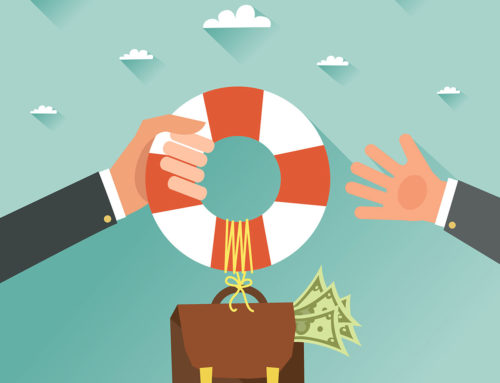When people have questions, and they search online a whole lot these days, and financial inquiries are no different. In fact, Google, the world’s largest search engine, accounting for 88.96% of all search traffic, gets 40,000 search queries EVERY SECOND on any given day. That tallies up to about 3.5 billion Google searches per day or 1.2 trillion every year. And while Google may dominate the search business, it’s by no means the only game in town. Bing is the second largest search engine with 8.02% of all traffic and Yahoo is next with 2.26%. However, in Yahoo’s case, it also receives a high volume of questions about financial and money matters because of its popular site, Yahoo Finance.
So with decided to count all of those searches one by one to figure out the top 10 searched questions about finances and money. Ok, so our research was easier than that – we just Googled it- but we came up with some pretty interesting – and entertaining – answers. And while we don’t endeavor to answer these questions here, we will add some side notes about their popularity or creditability or whatever strikes us.
Top 10 Google queries about finances:
1. How can I get rich online?
Apparently, most people don’t want to roll up their sleeves and work hard these days nor head into an office, but prefer the riches and convenience of working online.
2. How to invest in stocks?
Valid and instructional topic – and hopefully people are getting good advice because there’s no one answer for all investors.
3. How much house can I afford?
That usually depends on your debt-to-income ratio to determine how much will reasonably fit into your budget.
4. How can I pay for college without going broke?
That’s the billion dollar questions these days, as college costs have risen precipitously in the last decade, pricing many would-be-students out, or leaving them saddled with debt.
5. Should I pay off my credit card or save?
Great question, actually. Financial experts want you to have at least 3 months nut in savings in case something goes wrong, but it’s hard to get there if you’re dumping money into credit cards and paying exorbitant interest charges the whole time.
6. How to get student loans forgiven?
Like the Loch Ness Monster, Big Foot, and UFOs, student loan forgiveness is oft reported but rarely confirmed.
7. How much do YouTubers make?
Internet searches are enthralled with the thought of making money with their own YouTube channel, as some of the most popular contributors do make hundreds of thousands of dollars once they monetize the traffic.
8. When can I retire?
We are still concerned with making enough money for us to walk away and enjoy retirement, though the norms and realities seem to be rapidly changing.
9. How much should I spend on an engagement ring?
Three month’s salary was always the rule, but no – that doesn’t mean you should be excited if you make nothing.
10. What is the best bank for college students?
A few great banks have special accounts and services for college students who may be managing their own money for the first time.
The 10 Strangest questions Googled about money and finance:
1. Is it illegal to spend fake money?
Follow up question: Even if you “didn’t know” it was counterfeit?
2. Can I buy life insurance on my ex husband?
Planning on cutting someone’s brakes?
3. Do hundred dollar bills smell like maple?
Only if you pour maple syrup on them.
4. How to steal money from a vending machine?
Googling how to perform illegal activities isn’t the smartest thing you could do, as your IP address registers searches.
5. Why am I poor and dumb?
See above.
6. How to buy an island?
Not with stolen vending machine money – I’ll tell you that.
7. Is buying alcohol for minors a felony?
Will you do it if it’s only a misdemeanor?
8. How to invest with no money?
At least you’re starting to arm yourself with knowledge, but a little bit of money helps.
9. How to make money by selling weed?
Move to a state where it’s legal and get a legitimate job.
10. Can a dollar pregnancy test be wrong?
You mean ‘incorrect’, or is it wrong that you only spent $1?
Top 10 Yahoo Finance searches:
1. Should I buy Apple stock?
While no one can accurately predict when the party will be over, Apple (AAPL) has been a measure of consistent gains over the last five years.
2. What’s my 2014 tax bracket?
That’s a question too complicated – and important – to trust a search engine! You may want to contact your CPA or tax preparer on that one.
3. How to start a business?
With 27.9 million small businesses in the U.S. and countless other entrepreneurs, it’s no wonder why that’s a popular search.
4. Should I refinance my mortgage?
You should at least look into it, as today’s rates are near historical lows, better loan programs are hitting the market, and we now have equity in our homes we didn’t during the lowest rate periods.
5. Can I buy a house with bad credit?
There are programs – such as FHA loans – that will help people with marginal credit scores buy a home, and some banks are letting people with a bankruptcy or foreclosure on their credit reports buy sooner. However, it may be a good idea to invest some time and energy into fixing up your score before you start the home buying process.
6. Should I buy Facebook stock?
Unlike Apple, many believe that Facebook’s relevance will actually decline over the coming years, as Millenials and younger generations prefer other social platforms. Then again, Facebook is buying up those other platforms like wildfire, so you’ll probably be fine as a stockholder.
7. Why are gas prices going down?
Don’t ask why, just fill up and enjoy it while it lasts.
8. Who is the richest man in the world?
That would be Bill Gates and his $79.2 billion…for now, but depending on the year and the list and the accounting method, Mexican mogul Carlos Helu is often listed #1.
9. Is social security taxable?
It can be, but it depends on if it was your only source of income or not and other factors, so you’re better off consulting a professional tax preparer.
10. What is Bitcoin and how does it work?
The easiest way to describe Bitcoin is as a currency that doesn’t require any printed money or coins, and isn’t tied to any central bank or nation.




